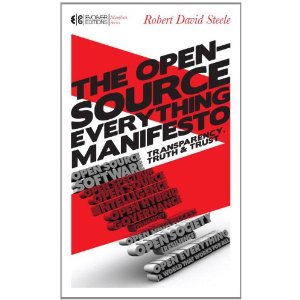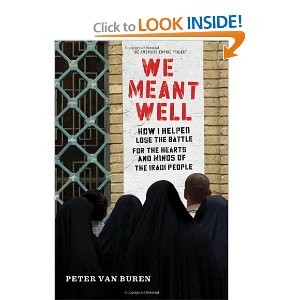 Brilliantly Conceived and Executed, Totally Absorbing, July 5, 2008
Brilliantly Conceived and Executed, Totally Absorbing, July 5, 2008
Helmut K. Anheier
Half the book is text and half superb illustrations and charts.
The publisher has failed to provide a table of contents, the easiest way to make it instantly clear to any prospective purchaser that this book is quite unusual in its scope and weight.
This is the first book in a series, the next two will focus on culture and economy, and then on culture and politics.
Close to 50 contributors, and a process of conferences in advance of the book's preparation, assure the quality and diversity of this offering.
Chapters 1-6 are introductory, each by different authors or pairs of authors, focusing on approaches and developments in the cultural dimension of conflicts and tensions.
Chapters 7-13 discuss different regional realities, including China and how the US cultural wars went global (no focus on the global class war in this book).
Chapters 14-17 discuss tensions; chapters 18 & 19 values, and chapters 20-22 migration into respectively, the USA, Argentina, and Malaysia.
Chapters 23-27 introduce the concept of culture as a tool for preventing and resolving conflict and are followed by a massive resource section, the cultural indicators suite.
My fly-leaf notes from the text half of the book:
+ Globalization can weaken social agencies and impose suffering on minorities
+ PERCEPTION of fairness or unfairness a major factor
+ Cultural entrepreneurs (e.g. Islamic clerics or American ministers) can hijack culture for their own ends (e.g. influence or wealth)
+ State fragmentation or shrinking reduces social safety nets
+ Globalization seen differently by varied groups
+ Lack of solid data on culture and conflict
+ Culture now transnational and subnational
+ Globalization equals competing world views in contact and collision
+ Culture moves globally as knowledge, artifacts or goods, and people in migration
+ Four general cultural protagonist groups:
– Davos Culture
– Faculty Club
– McWorld
– Religious revival
+ Globalization and global threats not being adequately addressed at global scale (e.g. the UN and Red Cross are not cutting it)
+ Identity politics can become conflictual–religion amplifies social differences
+ Huntington is anti-thesis to this book, a cliché
+ Worldview more useful term than civilization
+ Cultural conflicts are manufactured
+ Cultural heritage is a collective memory
+ When ethnic immigrant unemployment if 3 to 4 times that of natives, this invites conflict
+ Civil wars on rise and ethno-nationalist up to 90% from 25% in 1935
+ “Cultural practice” is a new set of competencies for dealing with the reality of conflict among groups
+ Theater can be used to role play and articulate repressed anger
+ Memory wars waiting to erupt
+ Cultural imperialism furthers immoral capitalism
+ Culture can help reconcile differences but cannot compensate for lack of water, food, shelter, security
+ Resistance strategies of Canada, Malaysia, and Kazakhstan reviewed
+ Fascinating chapter on Singapore fails to mention four official national languages: English, Mandarin, Malay, and Hindi
+ European model emphasizes somewhat imperfectly:
– Jobs and growth
– Economic policies
– Flexible labor
– Knowledge economies
– Investment in education
– Human rights
– Ecological issues
– Immigration
– Aging population
– Public reform
+ Fourth world: immigrants with no rights or recognition
+ China has seen rise of nationalism, anti-Americanism, cultural conservatives
+ On balance China's leadership has successfully managed Chinese capitalism and cultural shifts
+ USA in confusion, experiencing a 4th great awakening since 1975
+ Fault lines are North versus South, Arabs versus West, Religion versus Identity Politics, Europe versus USA
+ Mediating or cross-cultural “concord” organizations are needed:
– Logic of collective investment
– Promote overarching values
– Balance bridging and bonding
– Establish rules of engagement
– Recognize and reward investment
– Prevent proselytizing
– Acknowledge and receive legitimacy
– Avoid “gotcha”
– Accept incomplete understanding or less than full acceptance
– Support single-community endeavors
– Develop leaders
+ Citizen radio in Colombia helped (I think of multi-media Internet and cell phone broad and narrowcasting
My word limit prevents me from doing this book full justice. I hope someone else will provide a good overview and review of the second half of the book where the indicators are developed. While similar to Banks & Textor in the 1970's, and to many of the “State of ….” Graphical and Visual Atlases, I found this book to be completely engrossing and extremely worthwhile. Worth every penny. A signal contribution.
Other books of possible interest:
A More Secure World: Our Shared Responsibility–Report of the Secretary-General's High-level Panel on Threats, Challenges and Change
The Search for Security: A U.S. Grand Strategy for the Twenty-First Century
The Global Class War: How America's Bipartisan Elite Lost Our Future – and What It Will Take to Win It Back
Unspeakable Truths: Facing the Challenges of Truth Commissions
The Unconquerable World: Power, Nonviolence, and the Will of the People
The Fifty-Year Wound: How America's Cold War Victory Has Shaped Our World
Nobodies: Modern American Slave Labor and the Dark Side of the New Global Economy
All Rise: Somebodies, Nobodies, and the Politics of Dignity (BK Currents)
Society's Breakthrough!: Releasing Essential Wisdom and Virtue in All the People
Collective Intelligence: Creating a Prosperous World at Peace

![]() PREPARE TO HAVE YOUR MIND BLOWN!,June 24, 2012
PREPARE TO HAVE YOUR MIND BLOWN!,June 24, 2012





